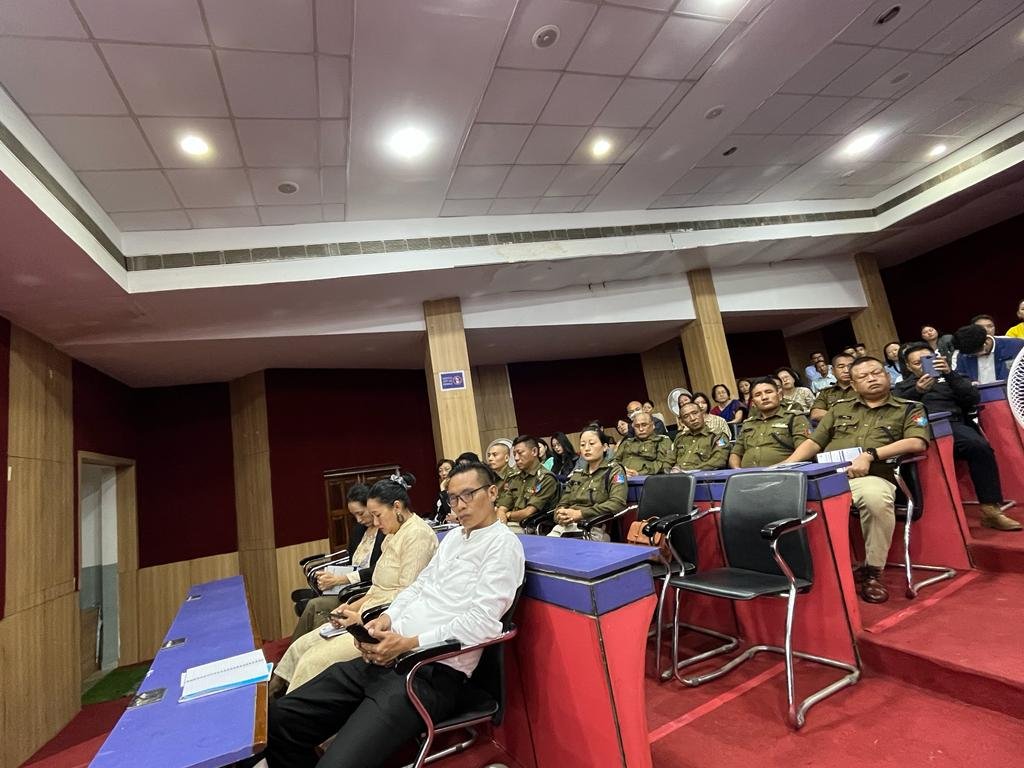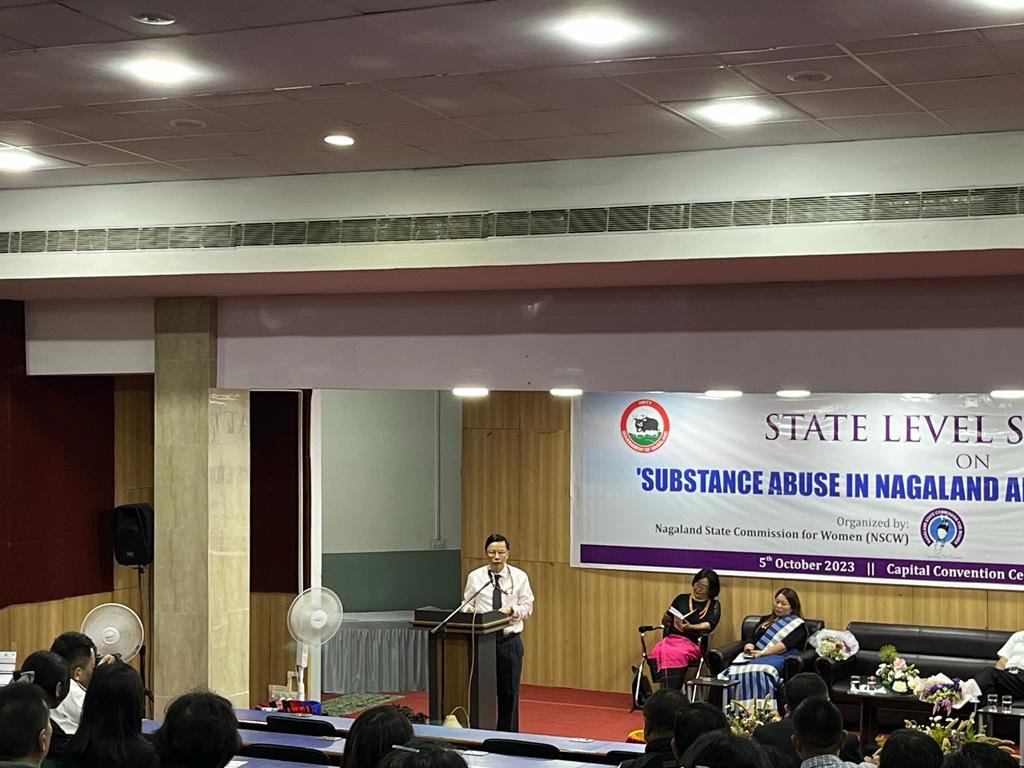During the State level seminar on “Substance abuse in Nagaland and it’s impact on Women” held on October 5, Guest of Honor, A.Asholi Chalai, Joint Secretary NCW reflected on the economic, social and cultural sectors which has contributed to substance abuse in the region.
Held at the Capital Convention Centre, the Seminar was organised by the Nagaland State Commission for Women (NSCW) and supported by National Commission for Women (NCW).
While consumption of alcohol was historically a part of cultural and religious practices, Chalai noted that today it has evolved into more widespread alcohol consumption. He underscored that the cultural acceptance of alcohol has contributed to higher alcohol consumption.
The prevalence of substance abuse being particularly very high among the youth in Nagaland, Chalai pointed out that peer pressure, curiosity, and a desire for experimentation contribute to this trend.
“Nagaland faces economic challenges, including limited job opportunities. Substance abuse may be a coping mechanism for individuals dealing with unemployment, financial stress, or lack of prospects,” stated Chalai.
Another area of concern of rising substance abuse can be attributed to psychological factors. According to Speaker, many individuals turn to substance abuse as a means of escaping emotional or psychological issues, such as stress, depression, trauma, or peer pressure.
“The availability and accessibility of alcohol and drugs have increased in Nagaland over the years due to the informal sale of alcohol, smuggling of drugs, and limited enforcement of regulations,” pointed out Chalai.

Further, the limited awareness about the risks associated with substance abuse and a lack of preventive education contribute to the problems of substance abuse where many individuals may not fully understand the consequences of their actions.
The region has experienced periods of conflict and unrest, said Chalai, which can contribute to a sense of hopelessness and vulnerability, making some individuals more susceptible to substance abuse. The Joint Secretary further pointed out the lack of treatment facilities makes it challenging for individuals to seek help and recover from substance abuse.
He added that addressing these factors requires a comprehensive approach involving education, awareness campaigns, economic development, access to treatment, and community support.
Download Nagaland Tribune app on Google Play

With substance abuse causing significant impacts on women, Chalai highlighted that women face social stigma, health risks, economic impact, domestic violence, mental health issues, parenting challenges, and affecting community dynamics since women are often the primary caregivers.
“Substance abuse in Nagaland requires a comprehensive approach, including awareness campaigns, access to addiction treatment services, and social support systems to mitigate these negative impacts on women and society as a whole,” stated Chalai, encouraging local leaders, NGOs, and community members to organize awareness programs, workshops, and support groups.
In order to develop a comprehensive approach, Chalai suggested the need for treatment accessibility, mental health support, economic empowerment, legal framework, family and community support, peer support groups, research and data collection.
Early Intervention, implementation of long-term monitoring and evaluation mechanisms, establishing crisis helplines and support services that are accessible 24/7 for women and families in need, tailoring prevention strategies to respect and incorporate the cultural norms and traditions of Nagaland, were also recommended by the Joint Secretary.
“Preventing substance abuse and its impact on women in Nagaland is a complex task that requires the commitment of the government, community leaders, healthcare providers, and civil society and by implementing a combination of these recommendations, Nagaland can take significant steps toward reducing substance abuse and improving the well-being of its women,” remarked Chalai.

